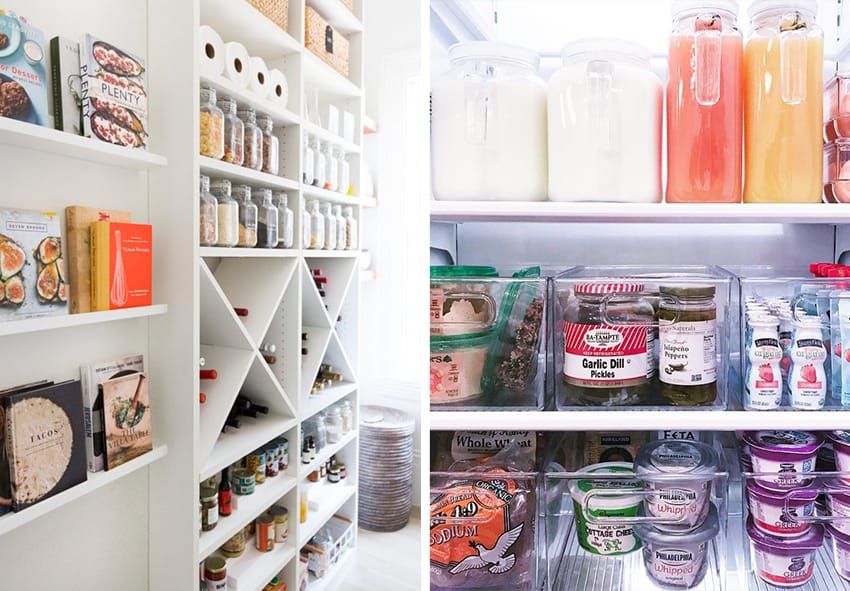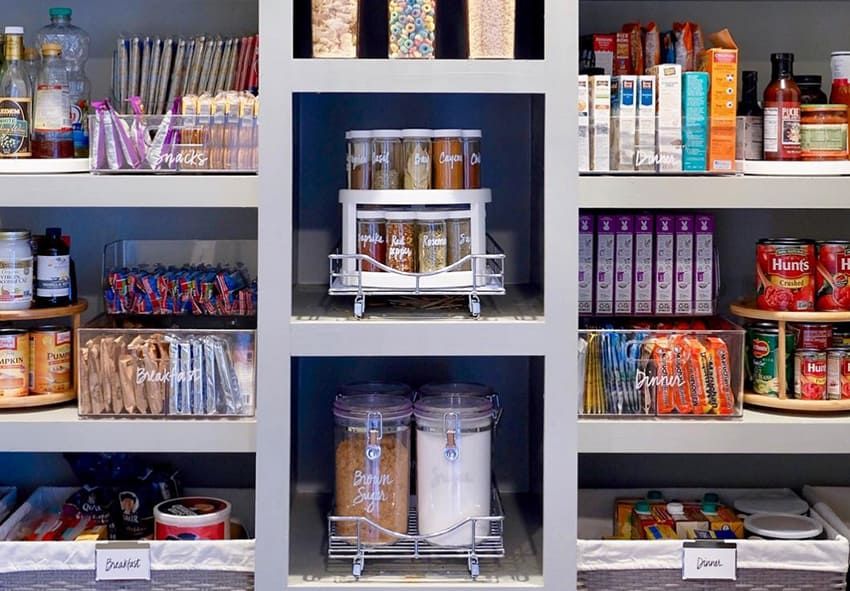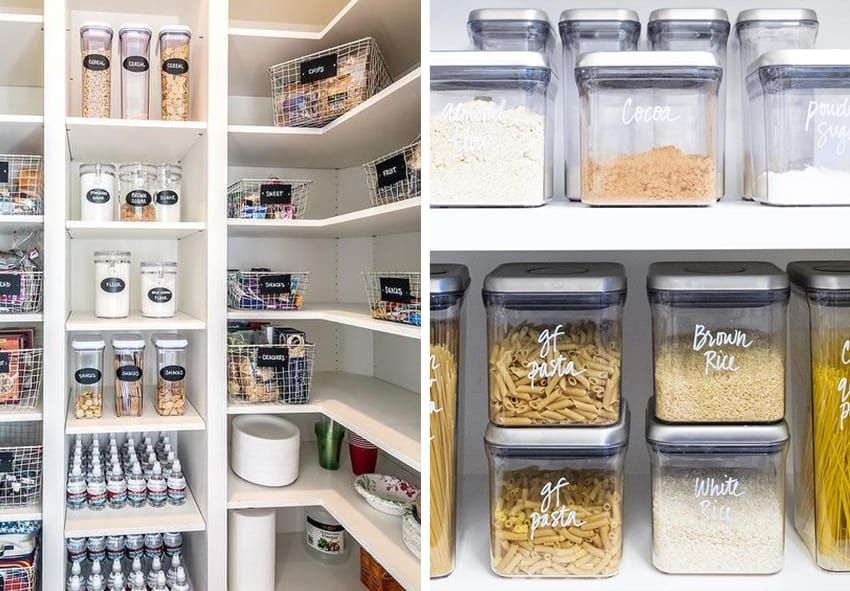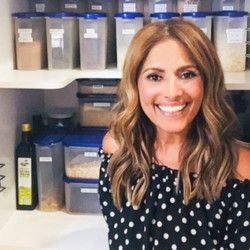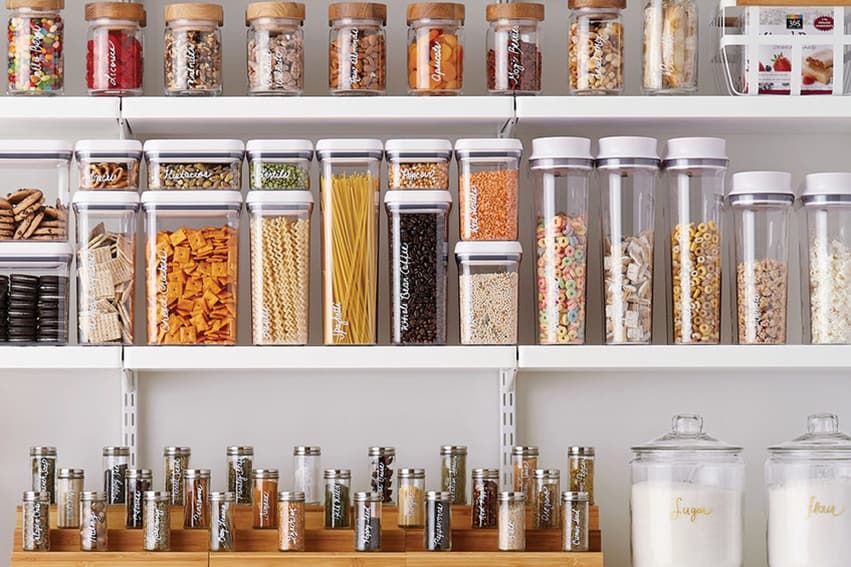
As part of week three of March Makeover, we wanted to bring in the big guns to help us conquer the chaos in our homes – specifically our kitchens and pantries.
A lot of people we have spoken to say that even though their kitchen is the most used room in the house, it’s often the most neglected in terms of organisation.
Because this is a common problem for so many of us, we wanted to speak to Georgie Rees from Clutterfly Home Organisation to get the goss on how to best organise our homes and to see if she had any tips or tricks she could share.

There can be many indications that the state of our home is reflecting how we feel about the rest of our life.
If you:
- Are overwhelmed the moment you walk into your home (or particular room)
- Find you don’t want to spend time in your home (or particular room)
- Are generally feeling stressed, anxious or finding it hard to focus
- Feel like you are wasting too much time doing things over and over or constantly trying to find things
- Are wasting money on fines, unused coupons, re-purchasing items etc
- Aren’t feeling as healthy as you’d like
If you can recognise those indications then you can identify the areas that you can improve on. You will soon feel like you are more in control, happier, more relaxed and have a better sense of wellbeing. And have more time and energy to actually enjoy your home.
 Everyone has their own level of organisation (or threshold for clutter). It’s important that you don’t get caught up judging yourselves by others and their houses. The first thing I do with a client is determine what organising style suits their personality. Otherwise it’s a just a case of square peg round hole. So with that in mind even the most Instagram worthy house could still have room for improvement if the occupant wants it to function better for them.
Everyone has their own level of organisation (or threshold for clutter). It’s important that you don’t get caught up judging yourselves by others and their houses. The first thing I do with a client is determine what organising style suits their personality. Otherwise it’s a just a case of square peg round hole. So with that in mind even the most Instagram worthy house could still have room for improvement if the occupant wants it to function better for them.
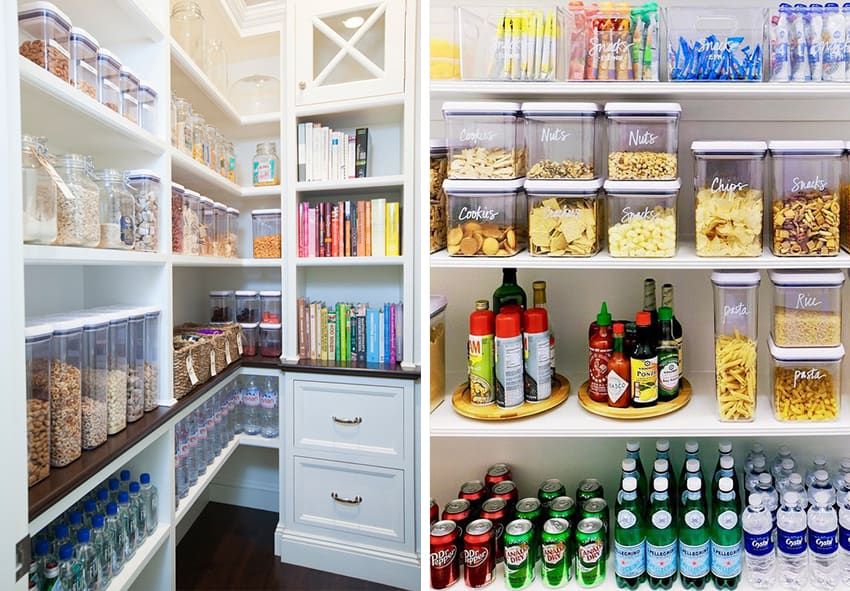
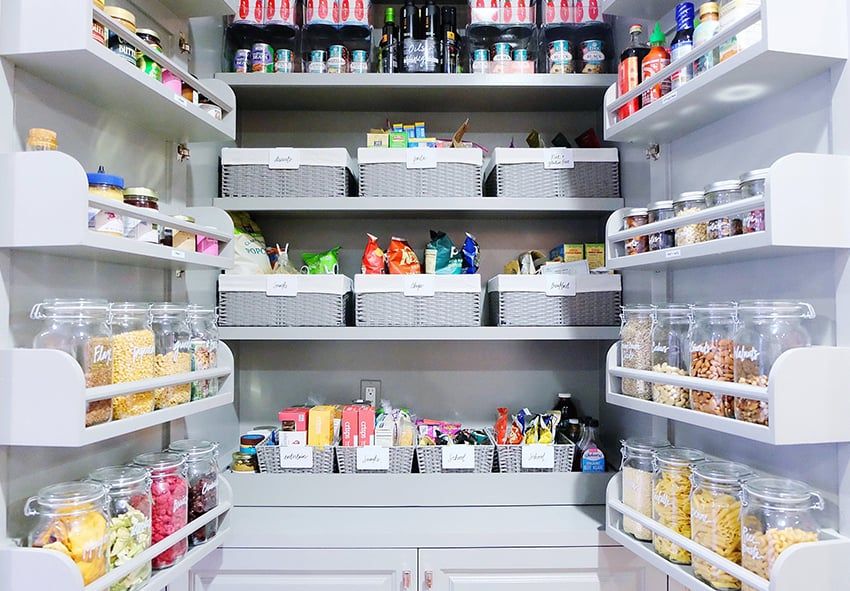
 Everyone is different and have an attachment to things for different reasons. But I guarantee you all have some ‘just in case’ items that deep down you know you will never use, but can’t quite let go of. That’s where I come in, to help clients to work through the reasoning for keeping and very soon they can come to their own decision to let go. Of course if you have two of something it can be a good start to let go of one – the challenge is knowing you have the double up to start with and then finding the other one!
Everyone is different and have an attachment to things for different reasons. But I guarantee you all have some ‘just in case’ items that deep down you know you will never use, but can’t quite let go of. That’s where I come in, to help clients to work through the reasoning for keeping and very soon they can come to their own decision to let go. Of course if you have two of something it can be a good start to let go of one – the challenge is knowing you have the double up to start with and then finding the other one!
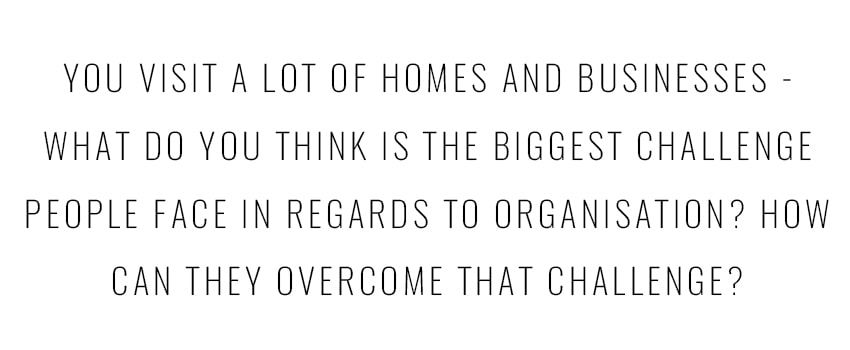
Getting started is often the biggest barrier. Many clients that have managed that, then find that they run into trouble as they don’t have enough time to complete it (and end up in more of a mess and even less likely to start again). If you can understand that there is a process and that it does take time, then you can set manageable expectations. Once that is achieved the biggest challenge can be maintaining the systems and organisation. But accepting that there will always need to be maintenance is actually the key to organisation. A little bit everyday quickly becomes part of your routine like brushing your teeth. Try scheduling in even small things to your diary or planner to start you off. One of the biggest things I help clients to understand is that if a system is less complicated then it’s going to be easy for you (and the rest of the family!) to maintain. So essentially by adjusting your expectations you may actually achieve what you want in organisation.
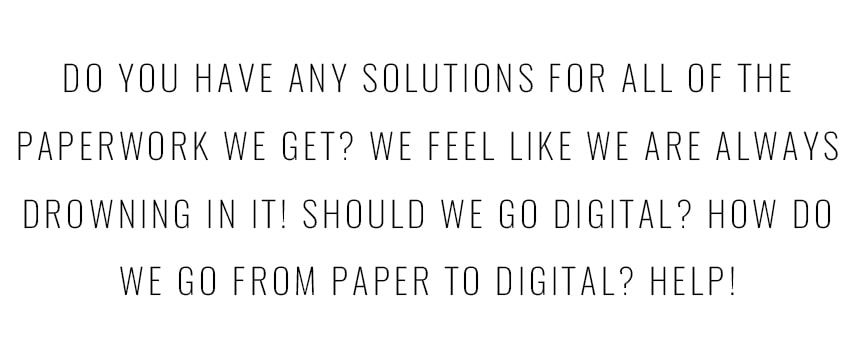
Digital verse paper is a very personal thing. Digital clutter can be just as overwhelming.
You can start to reduce things today by being mindful of what you are bringing into the home. Keep the recycling bin near where you collect your post and sort it on the spot. Take a moment to think before you sign up to things on the Internet. Or create folders in your email so that your mail is immediately sorted into easy to manage categories.

I have a mixture of both in my pantry. I keep flour in plastic containers that are the same shape as the flour packet so that I can just pop the whole bag in the container without having to spend time and make mess decanting. For things such as nuts and seeds I use glass jars, they are easier to decant from bulk and keep the nuts fresh. Here’s a tip – for no mess anytime you are decanting into containers, use a wide opening funnel.

We know children learn by example. And that is often the driver for many parents to try to get on top of organisation in their home, so that they are giving their kids the right environment to learn good habits. So setting up the systems is a start. Then you can build on that by encouraging them to be a part of it and be accountable. Depending on their age you can give them tasks and labels work wonders! Make sure you give them a defined task and timeframe, as they will be more likely to achieve it if they know they won’t have to do it all day!

Be kind to yourself!
Manage your own expectations for you and your family. That includes having a realistic vision or plan in mind so that you have something to work towards. This helps keep you on track if you a feeling a bit dejected at points (or distracted by unrealistic Instagram photos).
Thanks so much, Georgie!
